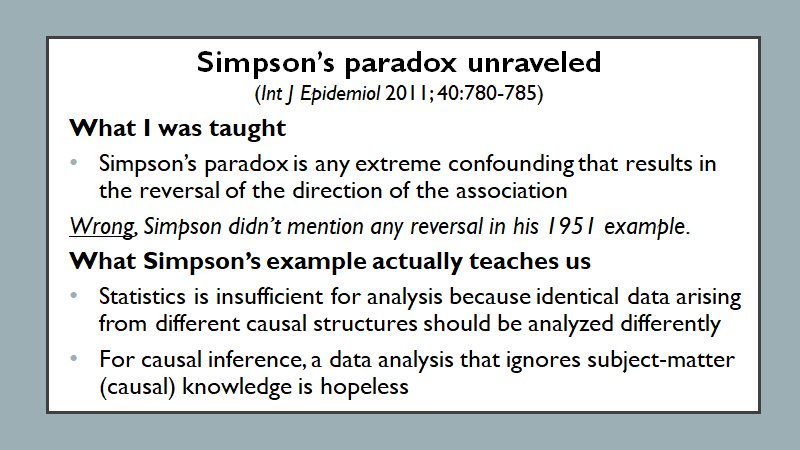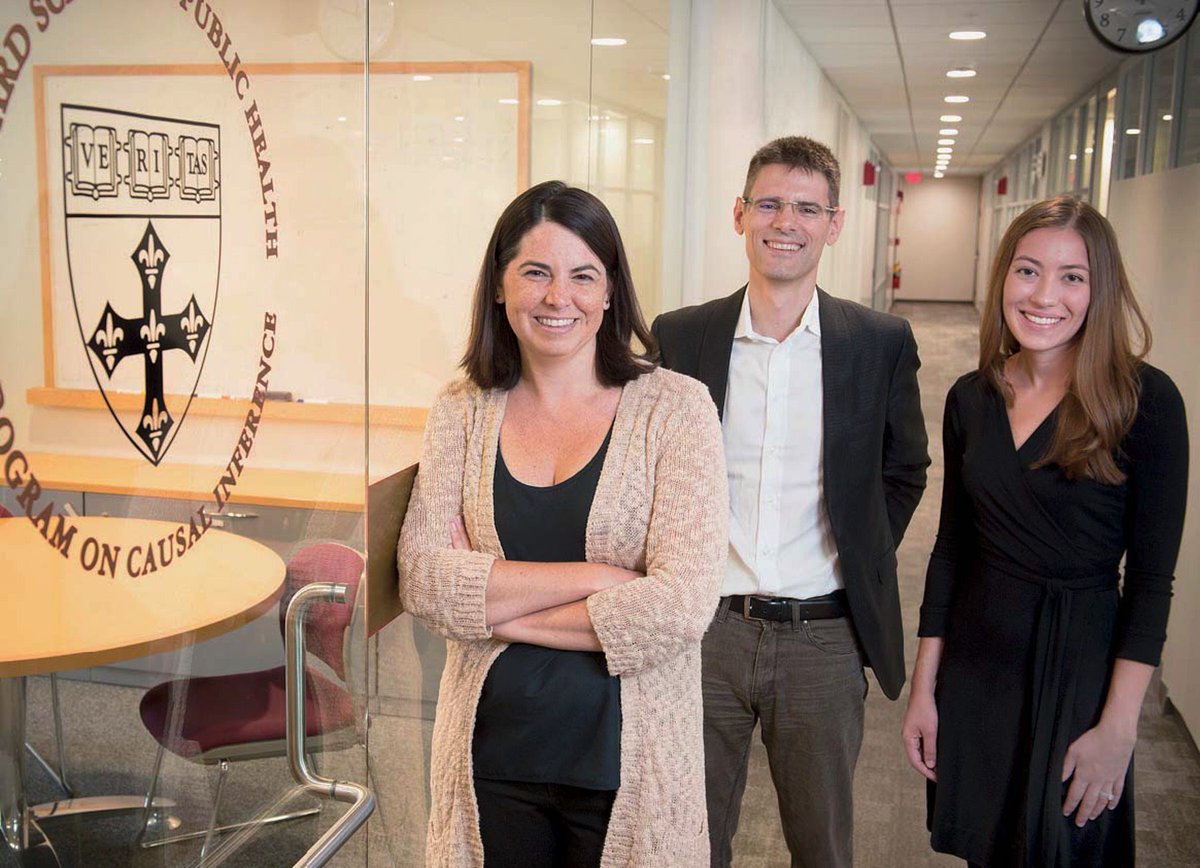Discover and read the best of Twitter Threads about #confounding
Most recents (6)
1. Congrats Dr. Heinemann and authors that evaluated the long-term post-transplant outcomes for pts with autoimmune liver diseases comparing living & deceased after brain death donor liver transplantation using the European Liver Transplant Registry. #ph260720 #AJT @amjtransplant
2. In this study, the authors studied 29902 patients from transplanted (including 1003 living donor liver transplant [LDLT] patients) for autoimmune liver diseases between 1998-2017.
onlinelibrary.wiley.com/doi/abs/10.111…
#ph260720 #ELTR #LDLT @ELITA_ELTR
onlinelibrary.wiley.com/doi/abs/10.111…
#ph260720 #ELTR #LDLT @ELITA_ELTR
3. onlinelibrary.wiley.com/doi/abs/10.111… After risk-adjustment, both adult and pediatric LDLT recipients had a higher hazard of death if they had primary sclerosing cholangitis (PSC). This hazard was equivalent between the graft types for other liver diseases (AIH, ALD & PBC).
#ph260720 #PSC
#ph260720 #PSC
1/
We've just confirmed the effectiveness of the Pfizer-BioNTech vaccine outside of randomized trials.
Details @NEJM: nejm.org/doi/full/10.10…
Yes, great news, but let's talk about methodological issues that arise when using #observational data to estimate vaccine effectiveness.
We've just confirmed the effectiveness of the Pfizer-BioNTech vaccine outside of randomized trials.
Details @NEJM: nejm.org/doi/full/10.10…
Yes, great news, but let's talk about methodological issues that arise when using #observational data to estimate vaccine effectiveness.
2/
A critical concern in observational studies of vaccine effectiveness is #confounding:
Suppose that people who get vaccinated have, on average, a lower risk of infection/disease than those who don't get vaccinated.
Then, even if the vaccine were useless, it'd look beneficial.
A critical concern in observational studies of vaccine effectiveness is #confounding:
Suppose that people who get vaccinated have, on average, a lower risk of infection/disease than those who don't get vaccinated.
Then, even if the vaccine were useless, it'd look beneficial.
3/
To adjust for confounding:
We start by identifying potential confounders.
For example: Age
(vaccination campaigns prioritize older people and older people are more likely to develop severe disease)
Then we choose a valid adjustment method. In our paper, we matched on age.
To adjust for confounding:
We start by identifying potential confounders.
For example: Age
(vaccination campaigns prioritize older people and older people are more likely to develop severe disease)
Then we choose a valid adjustment method. In our paper, we matched on age.
Hey everyone! Here’s a #tweetorial on our new paper on why we often can’t make #causalinference using #distancetocare as an exposure or instrument! cc: @epiellie
There are 3 problems with #distancetocare as an exposure for estimating causal effects. Let’s walk through them.
The first problem that probably comes to mind is #confounding 🙀Choices about where to live and where to locate care facilities are complicated and depend on a lot of things we might not be able to measure (e.g. socioeconomic status).
Edward Simpson, of Simpson's paradox, died last month at age 96.
telegraph.co.uk/obituaries/201…
Like all of us, I was taught #SimpsonsParadox by people who had not read what Simpson wrote:
jstor.org/stable/2984065
Then I read Simpson's paper and realized all the books were incorrect.
telegraph.co.uk/obituaries/201…
Like all of us, I was taught #SimpsonsParadox by people who had not read what Simpson wrote:
jstor.org/stable/2984065
Then I read Simpson's paper and realized all the books were incorrect.

Simpson's example illustrates the distinction between confounders and colliders, but...
in 1972, Blyth failed to grasp the causal structure of Simpson's example and misrepresented it as confounding
jstor.org/stable/2284382
Most people read Blyth only, which perpetuated the error
in 1972, Blyth failed to grasp the causal structure of Simpson's example and misrepresented it as confounding
jstor.org/stable/2284382
Most people read Blyth only, which perpetuated the error
So chances are that the #SimpsonsParadox you were taught is plain, extreme confounding
(all those cool graphs you have seen for Simpson's paradox just describe extreme #confounding)
when in reality Simpson's example is way more interesting.
More here
👇
academic.oup.com/ije/article/40…
(all those cool graphs you have seen for Simpson's paradox just describe extreme #confounding)
when in reality Simpson's example is way more interesting.
More here
👇
academic.oup.com/ije/article/40…
Randomization never ensures zero #confounding bias. It provides probabilistic bounds on confounding.
Therefore, by bad luck, the effect estimates from some perfectly conducted randomized #trials are substantially confounded. But we don't know which ones!
An eye-opening example:
Therefore, by bad luck, the effect estimates from some perfectly conducted randomized #trials are substantially confounded. But we don't know which ones!
An eye-opening example:
Draw your assumptions before your conclusions. Registration is open for our "Causal Diagrams" course @HarvardOnline bit.ly/2uQssso
@HarvardOnline This piece on our #CausalDiagrams course includes my truest quote ever: "If they get bored, they will stop watching" bit.ly/2w748W6 

@HarvardOnline A week to go and 3000+ people from 120 countries registered already. I'd need 20 yrs to reach so many students in my regular Harvard classes


